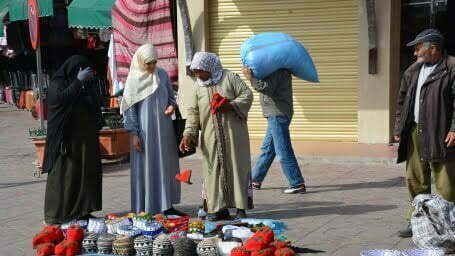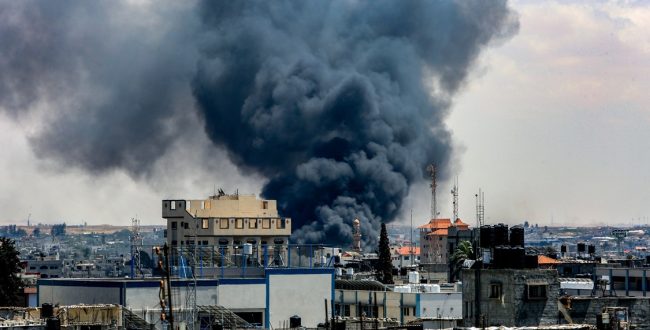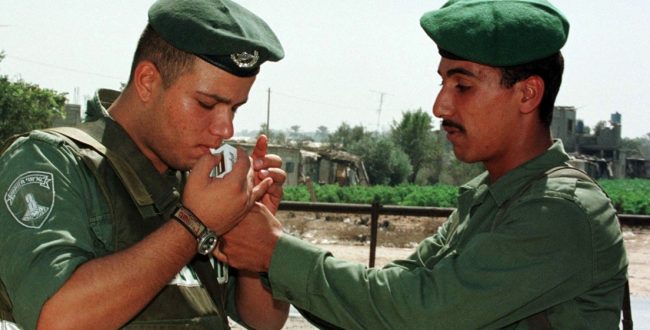In early May, some 7,000 women sat the public notary test ( ma’dhoun shara’i or adoul ,) throughout Morocco. This was a historic first time in which women were permitted to apply for the public position in the kingdom, until recently reserved for men alone. Public notaries oversee a variety of transactions, including sale of property, commercial contracts, and matters relating to marriage, divorce and inheritance. King Mohammed VI issued a royal decree opening the post up to women in early 2018 and charged the Minister of Justice with executing the decision – a testament to his enduring power over the country’s political system as well as his role as spiritual leader.
Other Arab countries took this step several years ago, among them Tunisia, Egypt and the UAE. Yet Morocco appears to be leading the Arab world in terms of integrating women into the religious establishment, as part of the king’s agenda to strengthen moderate Islam. Over a decade ago, Rabat saw the opening of L’Institut Mohammed VI Pour La Formation Des Imams, Morchidines et Morchidates – an institution for training both men and women as religious guides. The women are trained in the spirit of “Moroccan Islam”, which emphasizes a moderate interpretation of Muslim law ( shari’a) and incorporates elements of the popular Sufi Islam prevalent in Morocco. They are then sent to work as spiritual guides in various districts of the kingdom and operate as part of the education system, due to the institution’s declared policy of fighting radical Islam .
In other words, this advancement in the status of Moroccan women is largely a top-down development led by the political and religious establishment and backed by legislation. As far back as 2004 – a year after the mass terror attacks in Casablanca – the king decided to change the ‘family code’ law ( the Moudawana ). For the first time, the law made both spouses the joint heads of the family, eliminated women’s dependence on their husbands’ will, raised the marriage age (from 15 to 18), restricted polygamy and gave women the right to custody of their children after divorce. This wave of change has continued steadily despite objections, primarily by Islamist elements such as the Justice and Development Party ( PJD ), Morocco’s ruling party in recent years.
The king enjoys the support of the country’s strong civil society groups and especially women’s organizations, most of which are headed by educated, urban, secular women . These women took part in the 2011 Arab Spring protests that led to amending the country’s constitution to enshrine gender equality in it for the first time. They are fighting not only for legal changes but also to change conservative attitudes, especially in rural areas where law enforcement is lax. Child marriage and domestic abuse , for example, are still fairly common in these parts of Morocco. Yet the big cities are not immune to offensive norms, such as sexual harassment or assault in the public domain – an issue that has particularly come to the fore over the last year.
A leading figure in Moroccan feminism is Asma Lamrabet , a physician and scholar who has authored several books on the status of women in Islam. But Lamrabet’s approach, as a religious woman, is fundamentally different to that of her secular counterparts, who publicly oppose the principles of shari’a . For radical Islamists in Morocco, however, this makes little difference: under their pressure, she was forced to resign from her position as director of the Center d’Etudes Feminines en Islam (Islamic Women’s Studies Center) earlier this year. The pressure to leave was apparently the result of her call to end discrimination against women in Islamic inheritance law, while discussion of amending a similar law was under way in neighboring Tunisia.
Islamic feminism and the diversity of feminist activism as we see in Morocco is rarely discussed in Israeli media or academic discourse. The status of women in the Arab and Muslim world is usually discussed in simplistic terms, focusing mostly on head covers as a way of measuring the extremism of a person or a society. However, religious feminism and the search for advancing the status of women within the framework of religious law is a well-known phenomenon in Israel, too. In fact, some argue that the women working for equality within Orthodox Judaism are spearheading a true revolution among the religious public in Israel. Religious study centers for women are popping up; women are participating in rituals until recently reserved only for men, such as feminist Orthodoxminyans ; religious women’s organizations such as Kolech are being founded; and there are even female rabbinical advocates in the courts. Much like in Morocco, these changes have usually met with opposition by the patriarchal establishment .
At the end of the day, in Israel, like in many Arab countries, these far-reaching changes are also bottom-up processes driven by the women themselves. Traditional and religious feminists in the region, while undoubtedly influenced by Western ideas, are largely not looking to tear down existing cultural and religious institutions and frameworks, but rather seeking avenues for change within them.


















